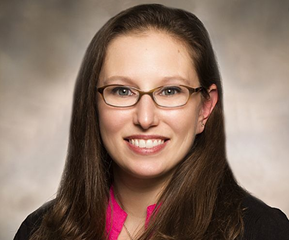 Contact Information
Contact Information
Department of Health Education & Behavior
University of Florida College of Health & Human Performance
P.O. Box 118210
Gainesville, FL 32611-8210
E-mail: nscaglione@ufl.edu
Website: Department Profile
CV
Position
Assistant Professor, Department of Health Education & Behavior, University of Florida College of Health & Human Performance
Research Area
Dr. Scaglione has over 10 years of experience leading federally-funded (i.e., DoD, CDC, NIH) projects aimed at reducing substance abuse and sexual violence in adolescents and young adults. Her research combines health behavior theory and mobile technologies to examine decision-making processes associated with drinking, drug use, and sexual risk, both globally and at the event level (during specific drinking/substance use occasions). She uses findings from her etiological work to develop and test interventions that target these processes to reduce individual and community risk for sexual violence.
Prior to joining the HEB faculty, Dr. Scaglione was a public health scientist at RTI International where she held a leadership role in developing and testing feasibility of implementing a tailored, tablet-based sexual assault prevention program in Basic Military Training for the U.S. Air Force. Her current work includes a recently funded grant to expand and adapt this training for the U.S. Air Force Academy. Other ongoing projects include a rigorous evaluation of a sexual violence prevention program for high school boys and secondary data analysis of event-level alcohol use and contextual risk factors associated with sexual risk in college. (From Department Profile)
Training
PhD in Biobehavioral Health, Pennsylvanie State University (2015)
MS In Health Promotion, Miami University (Ohio; 2008)
BA in Psychology, Miami University (Ohio, 2006)
Recent Publications
- Scaglione, N. M., Buben, A., Williams, J. A., Clarke, T., Elek, E., & Graham, P. W. (In Press). A latent class analysis of prevention approaches used to reduce community-level prescription drug misuse in adolescents and young adults. Journal of Primary Prevention.
- Hultgren, B. A., Scaglione, N. M., Buben, A., & Turrisi, R. (2020). Examining congruence between ecological momentary assessments and daily diaries of college student drinking: Implications for prevention. Addictive Behavior, 106471.
- Slavish, D., Scaglione, N. M., Hultgren, B. A., & Turrisi, R. (2019). An ecological momentary assessment of affect, mental health symptoms, and decisions to drink in first-year college women. Prevention Science, 20(5), 753-764.
- Sell, N. M., Turrisi, R., Scaglione, N. M., Cleveland, M. J., & Mallett, K. A. (2018). Alcohol consumption and use of sexual assault and drinking protective behavioral strategies: A diary study. Psychology of Women Quarterly, 42(1), 62-71.
- Sell, N. M., Turrisi, R., Scaglione, N. M., Hultgren, B. A., & Mallett, K. A. (2016). Examining the effects of drinking and interpersonal protective behaviors on unwanted sexual experiences in college women. Addictive Behaviors, 54, 40-45.
- Scaglione, N. M., Hultgren, B. A., Reavy, R., Mallett, K. A., Turrisi, R., Cleveland, M., & Sell, N. (2015). Do students use contextual protective behaviors to reduce alcohol-related sexual risk? Examination of a dual-process decision-making model. Psychology of Addictive Behaviors, 29(3), 733-743.
- Scaglione, N. M., Mallett, K. A., Turrisi, R., Reavy, R., Cleveland, M. J., & Ackerman, S. (2015). Who will experience the most alcohol problems in college? The roles of middle and high school drinking tendencies. Alcoholism: Clinical and Experimental Research, 39(10), 2039-2046.

